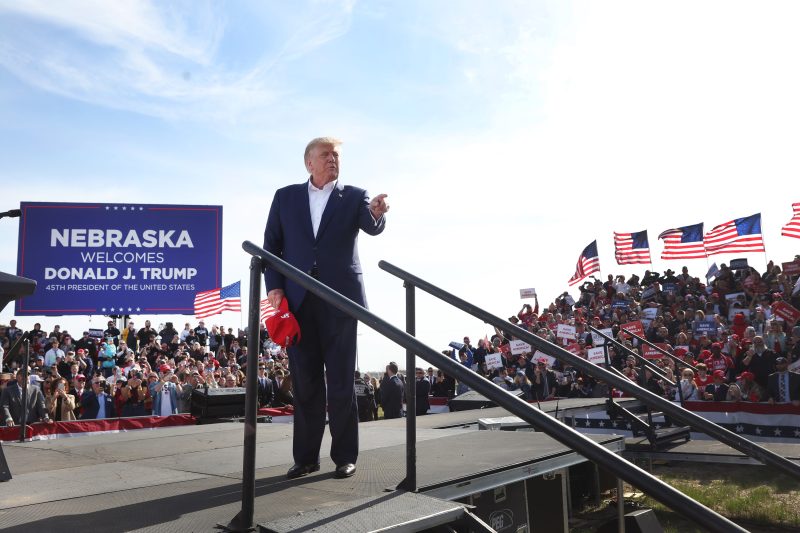
Trump Urges Nebraska to Shake Up Electoral Votes Allocation!
In a bold move that has ignited a firestorm of controversy, former President Donald Trump has intensified his efforts to convince Nebraska to adapt a new method for allocating electoral votes. This move comes as part of Trump’s wider campaign to reshape the electoral landscape to better suit his political agenda. The issue of electoral vote allocation has been a subject of debate for years, and Trump’s latest push is stirring up both fervent support and fierce opposition.
Electoral votes are a vital component of the American electoral system, determining the outcome of presidential elections. Traditionally, states allocate their electoral votes based on a winner-takes-all system, where the candidate who wins the popular vote in the state receives all its electoral votes. However, Nebraska is one of a few states that have adopted a different approach, known as the Congressional District Method.
Under the Congressional District Method, Nebraska divides its electoral votes by congressional district, with two at-large votes going to the overall winner of the state and one vote allocated to the winner of each congressional district. This system allows for greater representation of voters within the state and can result in a split of electoral votes between different candidates.
Trump’s push for Nebraska to change its electoral vote allocation is seen as a strategic move to increase his chances of securing electoral votes in the state. By advocating for a shift towards a winner-takes-all system, Trump aims to consolidate his support and maximize his electoral advantage.
Proponents of Trump’s proposal argue that a winner-takes-all system would simplify the electoral process and ensure a clearer mandate for the winning candidate. They contend that such a system would better reflect the will of the majority of voters in the state and prevent potential electoral disparities.
Conversely, critics of Trump’s push raise concerns about the potential impact on the democratic process. They argue that the Congressional District Method offers a more nuanced and fair representation of the electorate, as it allows for a proportional allocation of electoral votes based on regional differences in voter preferences.
The debate over electoral vote allocation in Nebraska reflects broader divisions within the American political landscape. As Trump continues to advocate for changes to the electoral system, the question of how to best represent the interests and voices of voters remains a contentious issue.
Ultimately, the decision on whether Nebraska will alter its method of electoral vote allocation will have far-reaching implications for future elections and could set a precedent for other states to follow. As the debate rages on, one thing remains clear: the battle over electoral votes is far from over, and the outcome will shape the future of American politics for years to come.
